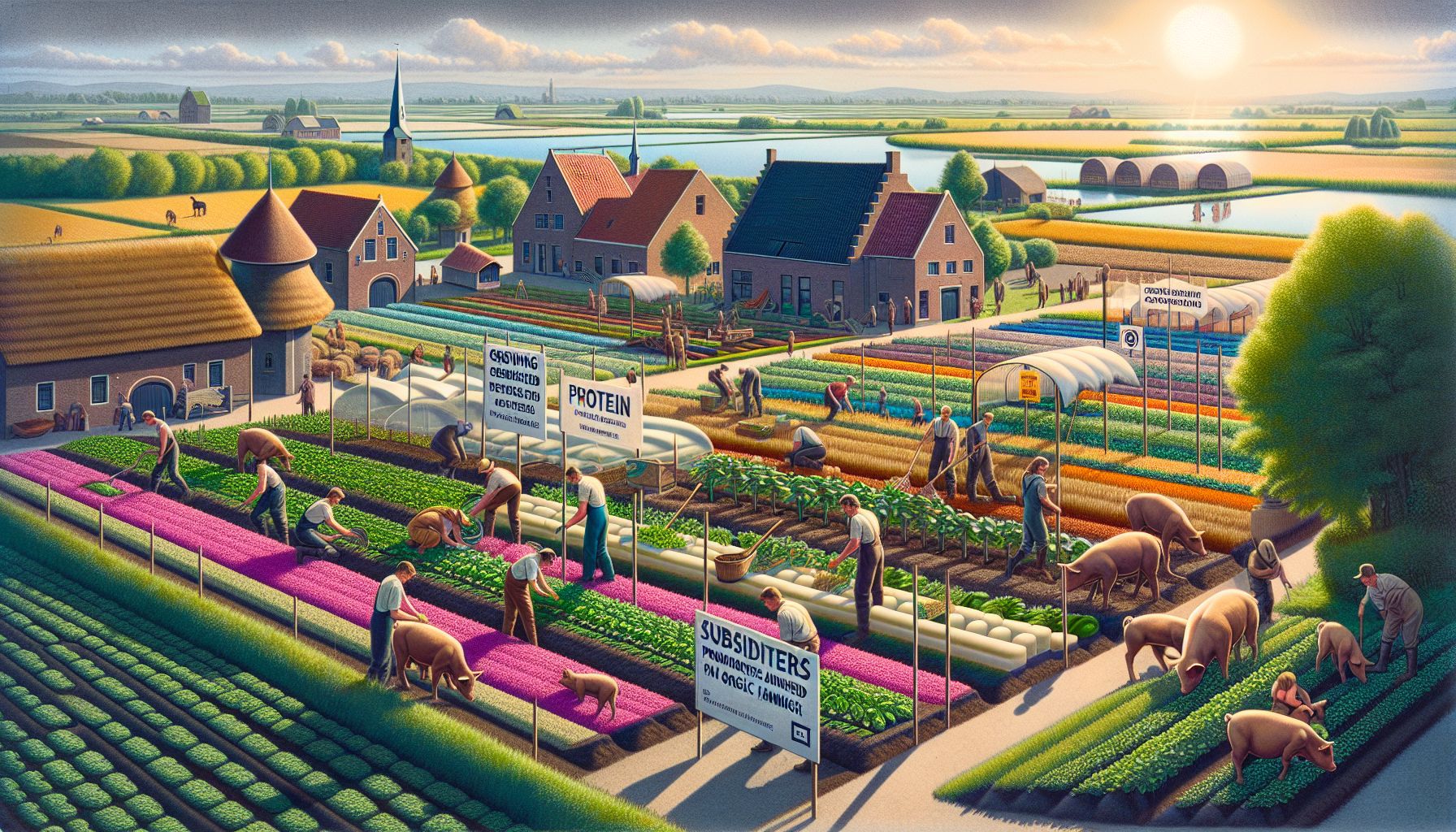Overijssel's €66 Million Boost for Sustainable Agriculture

Overijssel, Friday, 25 October 2024.
The Dutch province of Overijssel is investing €66 million to promote sustainable farming practices. This initiative aims to incentivize dairy farmers and crop growers to adopt environmentally friendly techniques, with subsidies for protein crops, biobased crops, and organic farming transitions. The project seeks to engage over half of Overijssel’s farmers in sustainable agriculture.
Incentives for a Greener Future
The province of Overijssel is taking a significant step towards sustainable agriculture by offering various subsidy schemes starting next week. Dairy and arable farmers are the primary targets of this initiative, which is designed to make agriculture more sustainable and attract participation from over half of the province’s farmers. ‘We want to entice a broad group of farmers to participate,’ stated Maurits von Martels, the provincial deputy for agriculture and nature[1].
Subsidy Breakdown and Expected Outcomes
Subsidies are structured to provide €600 per hectare for protein crops such as field beans, lupins, and soybeans, and €900 per hectare for multi-year biobased crops, with a total allocation of €8.1 million for these initiatives. Furthermore, dairy farms transitioning to organic farming can access €3.3 million in subsidies, receiving €250 per hectare per year during the transition period[1]. These financial incentives aim to stimulate the market and promote a shift towards more sustainable farming practices.
Long-Term Vision for Sustainable Development
In addition to immediate efforts, Overijssel has earmarked €13.5 million for a KPI project set to launch in spring 2025, which aims to engage approximately 1,150 dairy farmers[1]. This forward-looking approach reflects the province’s commitment to sustainable agriculture despite the cancellation of the National Program for Rural Areas (NPLG). The funds will also support innovations in farming practices with an additional €12 million starting in spring 2025.
Global Context and the Role of Innovation
This move by Overijssel aligns with global trends in promoting sustainable agriculture. Green agricultural technologies (GATs) are increasingly recognized for their role in enhancing food quality and reducing environmental impact[2]. For instance, the use of organic fertilizers can increase the protein content in crops by 2.0% to 3.5%, illustrating the tangible benefits of these practices[2].
Conclusion: A Model for Others?
Overijssel’s ambitious investment in sustainable agriculture could serve as a model for other regions looking to balance economic viability with ecological responsibility. As the world grapples with environmental challenges, initiatives like these not only promise to mitigate climate change impacts but also ensure long-term agricultural sustainability. The success of this program may inspire similar efforts globally, providing valuable insights into the implementation and benefits of sustainable farming practices.

